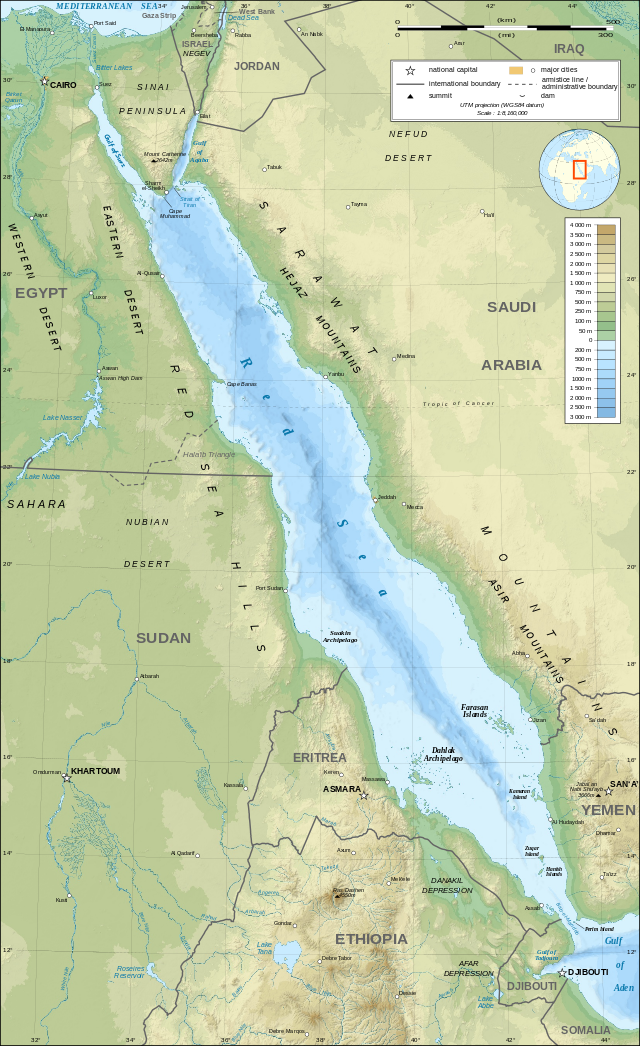After rebel forces closed in on the president's southern stronghold of Aden in late March, a coalition led by Saudi Arabia responded to a request by Mr Hadi to intervene and launched air strikes on Houthi targets. [Note: Mr. Hadi was a "guest of the Saudi when he made the "request"] The coalition comprises five Gulf Arab states and Jordan, Egypt, Morocco and Sudan. . . .
Yemen is strategically important because it sits on the Bab al-Mandab strait, a narrow waterway linking the Red Sea with the Gulf of Aden, through which much of the world's oil shipments pass. Egypt and Saudi Arabia fear a Houthi takeover would threaten free passage through the strait.
Yemen crisis: Who is fighting whom? - BBC News
∼∼∼∼∼∼∼∼∼∼∼∼∼∼∼∼∼∼∼
Bab al-Mandab has been occupied by homo sapiens for 6-,000 years, whth varying success.
From Wikipedia:
Haines[disambiguation needed] stated that it could become a major trading centre and the latter part of the British period proved him correct with Aden growing to become one of the busiest ports in the world. In 1838, under Muhsin bin Fadl, Lahej ceded 194 square kilometres (75 sq mi) including Aden to the British. On 19 January 1839, the British East India Company landed Royal Marines at Aden to secure the territory and stop attacks by pirates against British shipping to India. The port lies about equidistant from the Suez Canal, Mumbai, and Zanzibar, which were all important British possessions.
The Suez Canal was open in 1869. The Bab al-Mandab strait has been important to world commerce since then.



No comments:
Post a Comment